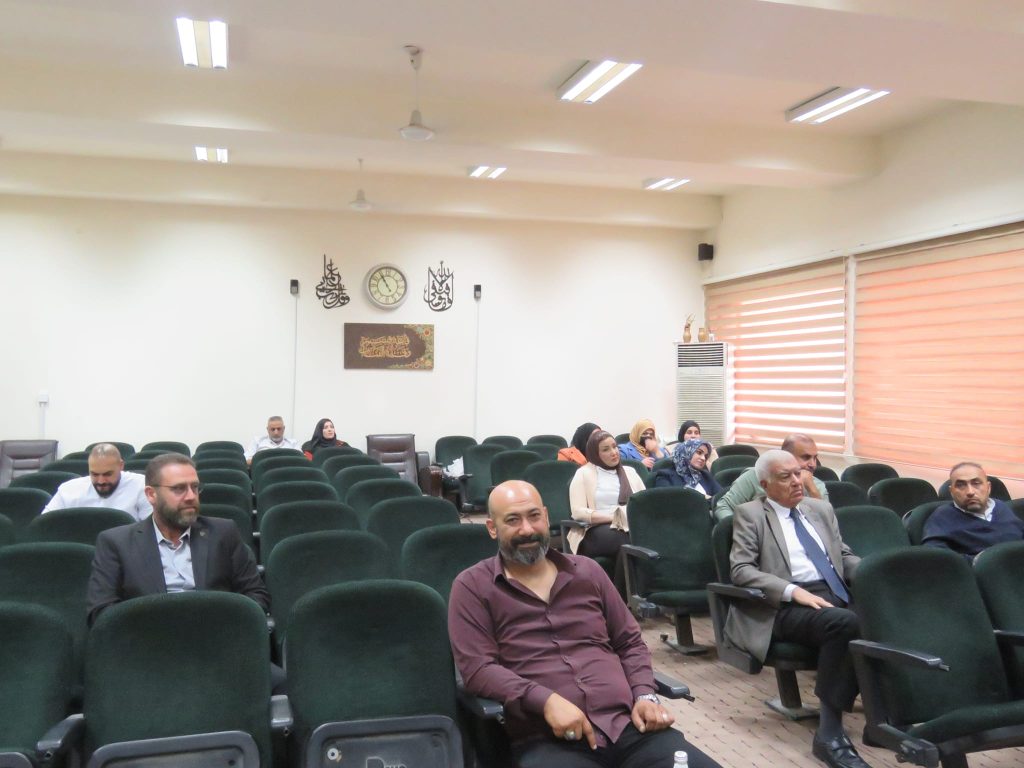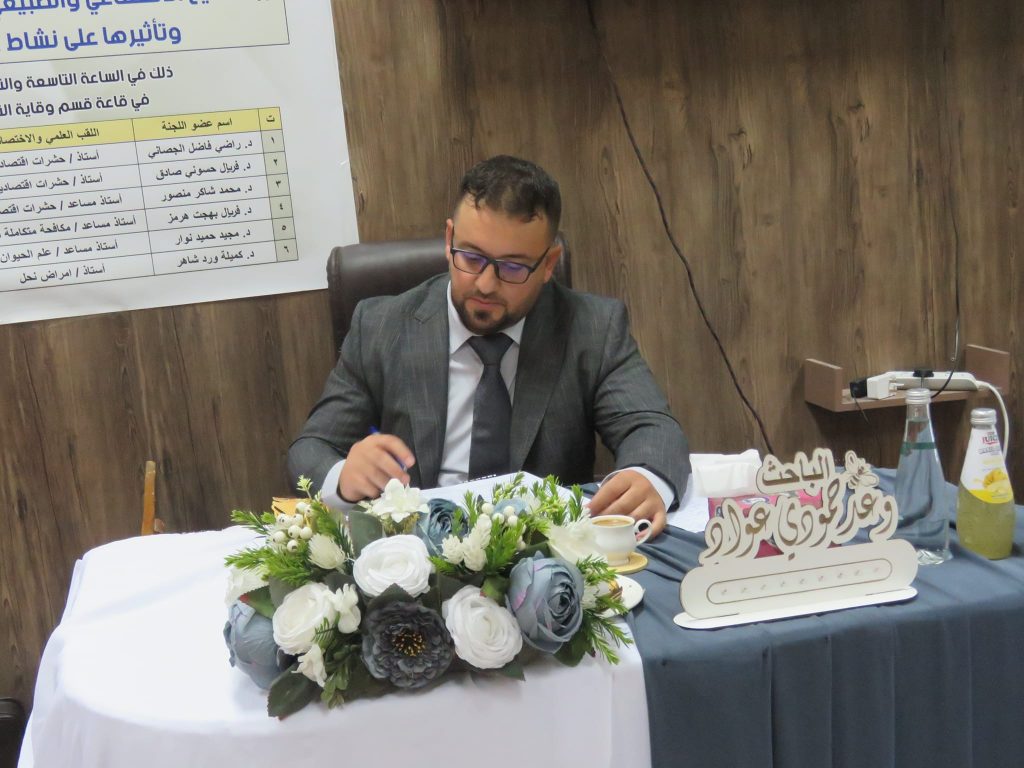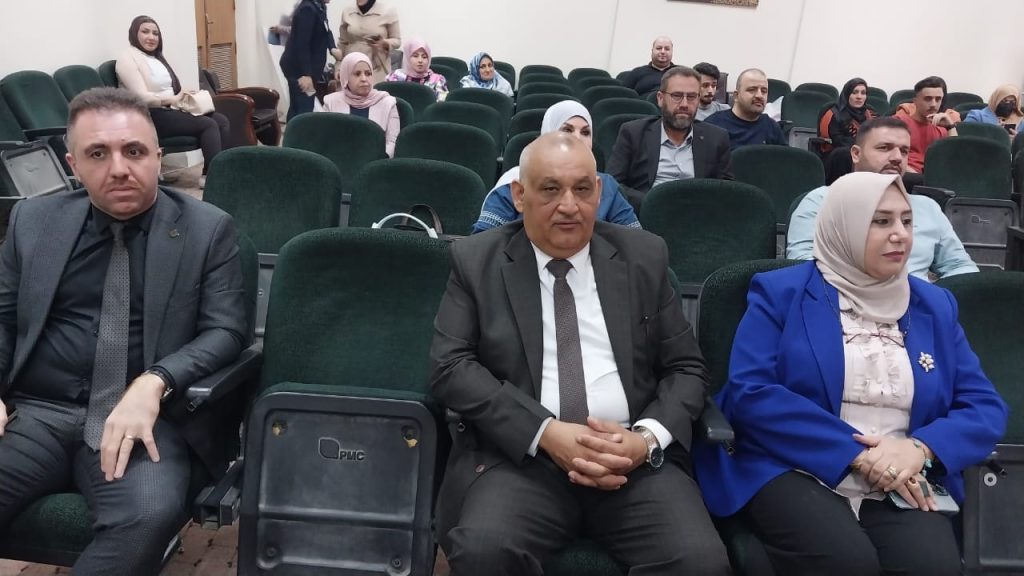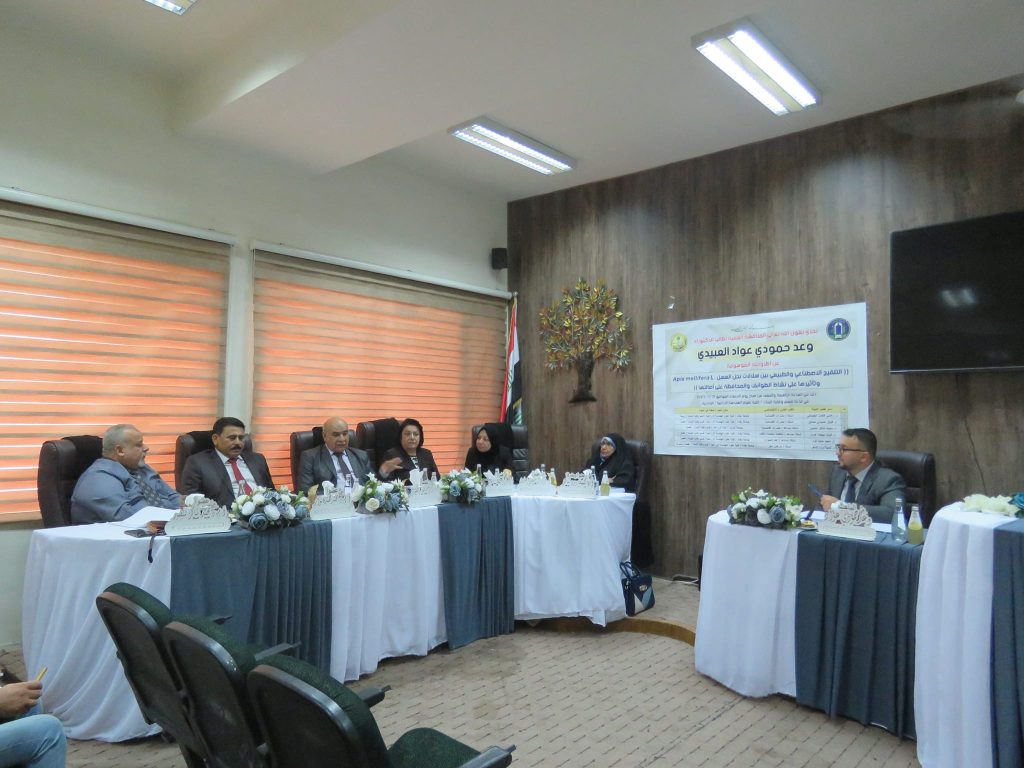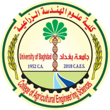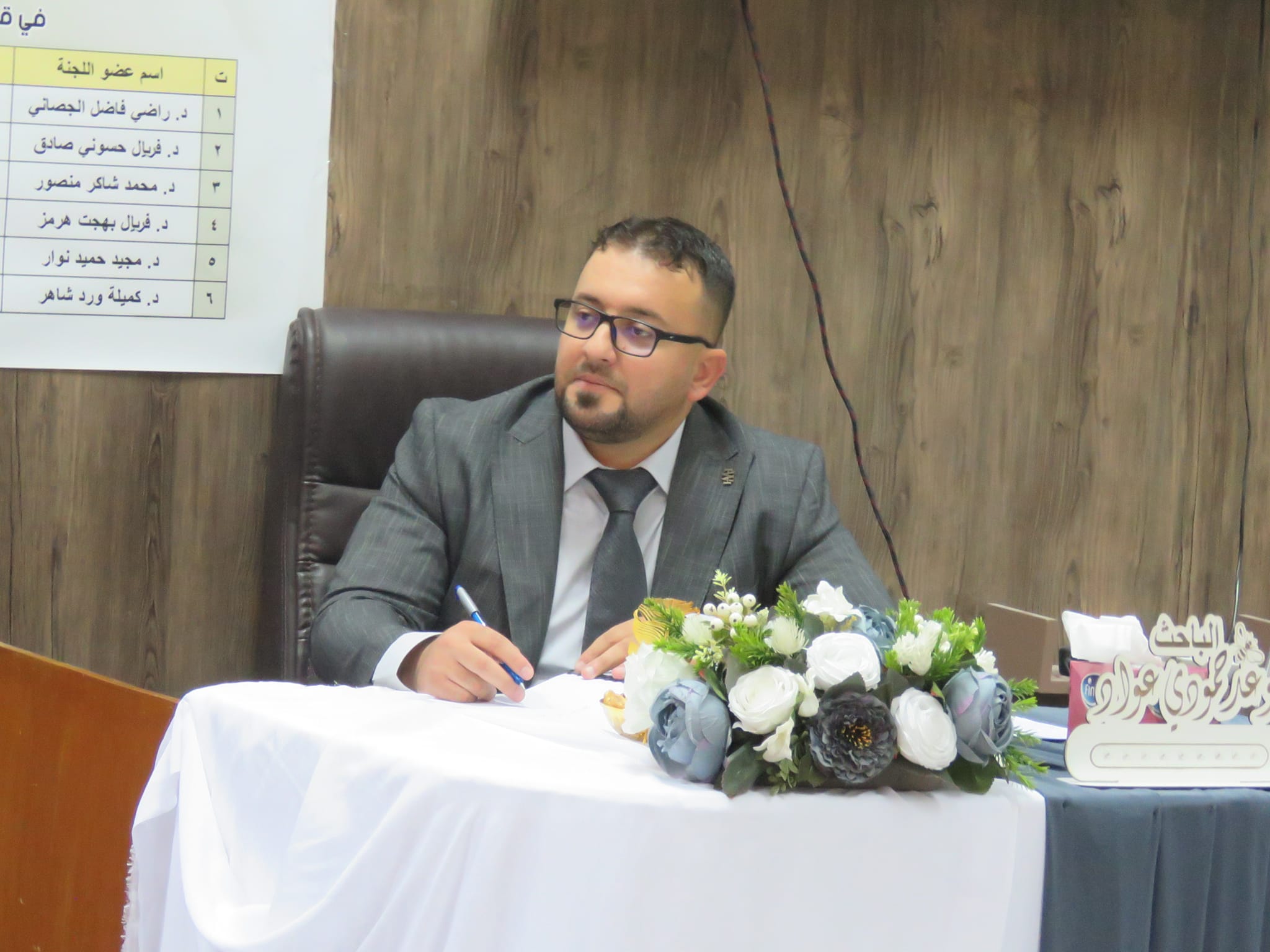A doctoral dissertation entitled “Artificial and Natural Insemination Among Honey Bee Strains (Apis mellifera) and Their Impact on Colony Activity and Conservation of Authenticity” was successfully defended at the College of Agricultural Engineering Sciences, University of Baghdad. The student, Wad Hamoudi Awad from the Plant Protection Department, aimed to study the influence of insemination type on some morphological and physiological traits of honey bee queens and the studied strains.
The dissertation also investigated the effects of artificial and natural insemination on the health behaviour of local and imported bee strains, as well as the outcomes of hybrid insemination. Additionally, the research delved into the effects of temperature and humidity on the activity and production of different studied strains.
The researcher recommended further studies on the use of artificial insemination to hybridize the Iraqi local bee strain with other imported bee strains, especially the Italian strain. Moreover, the researcher suggested conducting more studies on attempting to root the Iraqi local strain and establishing a purification project to obtain a genetically supportive strain. This could potentially involve relying on artificial insemination in the project to root and purify the Iraqi local strain. There is also the possibility of relying on the local strain and the hybrid resulting from its queens and the males of the Carniolan strain to produce colonies with high production specifications. This could include the propagation of virgin queens and artificial insemination outside the usual season for reproduction and insemination.
Congratulations to the student for this success!

